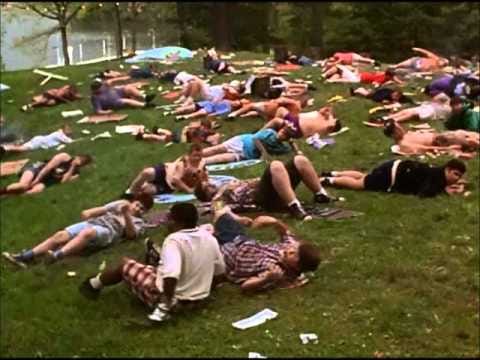Thanksgiving and Foundational Conservatism
Without a bedrock of certain simple conservative values, like gratitude and giving thanks, there is no good soil for a more principled conservatism to take root.
Happy Thanksgiving! Welcome to a special holiday issue of the Self-Evident newsletter. I’m writing this on Wednesday, but by the time this publishes, I’ll probably have gone through several food comas (at least one each for Turkey and Pie, and probably one additional one gorging on leftovers).
I tend not to participate in the post-Thanksgiving shopping rush, so you can just picture me spending my Friday snuggled up next to the fire and catching up on reading a little Sowell, Locke, and Harrington (rather than wait to establish a New Year’s resolution, I’ve jumped the gun and set myself an End of Year resolution to have an Introduction and First Chapter completed for my book, tentatively titled The Road to Chaos: a treatise on conservatism and radicalism, so I can begin submitting to agents with the new year). The reading will, of course, be joyfully punctuated by lots of roughhousing with the kids and more than a few hands of rummy with my wife and her family. I hope your Thanksgiving finds you similarly happy and content.
To offer a little intellectual stimulation for your long holiday weekend, I decided to update and present something I wrote a few years back around this same time of year, a discussion about how foundational giving thanks is to a conservative mindset.
Thanksgiving and Foundational Conservatism
For nearly a decade now, there’s been a lot of spilled ink in discussing and debating the principles and values of conservatism. I myself have tried to champion my own brand of conservatism, one that tries to place principles and values first while setting aside the distractions and emotions of political narratives and partisan politics.
But one thing I’ve learned over the long slog of my modest writing career is that there is very little agreement these days over what the principles and values of conservatism are. Even among the political minority of those who largely reject the populism and nationalism of the Trump era and yet remain stalwart and even strident conservatives, there can be quite a debate over what principles we stand for, even as we agree that so many of our fellow conservatives have departed from them.
My conclusion when it comes to any kind of “principled conservatism” is that it is necessarily more of an ongoing dialogue between good-faith intellectual and conscious conservatives than it is a line-list of statements on principle. In fact, it seems the more we try to seek consensus on rock-hard statements around which we can say, “If you don’t believe this, you’re not a conservative,” the more we just shrink the tent and fuel the resentment that’s already imploded our movement.
More and more, I’ve come to realize that principles are very personal and individual notions. A movement can have values, but principles live or die in the hearts of its individual members. And no one can truly dictate to anyone else what their principles are...or should be. People learn and discover principles through formative experiences and heartfelt searching out of truth. It is an almost sacred experience, one that cannot be manufactured or simplified into a formula…or voted on by a committee. And, most crucially of all, sound principles built on right reason cannot be developed without a proper foundation.
If you try to teach a child to form a sentence before they’ve been able to form words, they’re not going to be able to do it. It doesn’t matter whether your grammar is impeccable. The child simply doesn’t have the foundation to learn or even comprehend what you’re trying to teach them. Similarly, no matter how you champion certain principles and values, no matter the eloquence of your exposition upon the proper points of principle, and no matter how long you shout about the importance of your principles, your efforts are going to fall on deaf ears if people don’t have the foundational development that allows them to comprehend and adopt the principles as their own.
The reality of our political moment is that the enlightening and uplifting dialogue that a conservatism based on values and principles can be is simply not possible if there is no foundational conservatism to build on. And because this is the reality, the efforts of those who would like to see a more principled conservatism will never bear fruit if they don’t seek to understand the foundational aspects of conservatism and seek to rebuild that foundation from the ground up.
So, what is foundational conservatism? That, as well, could be quite the conversation. But, sidestepping the deeply philosophical and intellectual journey that question could lead to, there are certain simple, straightforward aspects of a conservative foundation that most strains of conservatism could buy into. Specifically, in agreement with Yuval Levin and quite appropriate for the Thanksgiving holiday, I’ve determined that the bedrock aspect of foundational conservatism can be nothing else but gratitude.
As Levin says, “Conservatives tend to begin from gratitude for what is good and what works in our society and then strive to build on it,” while others “tend to begin from outrage at what is bad and broken and seek to uproot it.”
This idea is simple and seems like common sense. But in practice, maintaining such an outlook can be pretty challenging, especially in times of political upheaval and anxiety. As I’ve thought about this idea of gratitude during the Thanksgiving holiday, I challenged myself to identify a political movement or effort over the past decade truly centered on gratitude rather than being centered on “outrage at what is...broken.” Are there any?
If I’m being honest, I couldn’t say that there have been any that haven’t been based, in one way or another, on a backlash against something viewed as broken in society. We have a political culture shot through with ingratitude for what isn’t broken. Whether it’s the Left, the Right, or the Center, we are a mass conglomerate of movements and efforts fueled by outrage, anxiety, and hostility toward anything and everything deemed as hopelessly broken and beyond repair.
So, I have a few questions for you to ponder for the rest of this holiday weekend. Can there be principled conservatism if there isn’t foundational conservatism, and can there be foundational conservatism without a bedrock of gratitude in our political culture? Especially from the perspective of a non-Trump conservative, can there be a “return to principle” anywhere in the foreseeable future if we ourselves fail to rise very far beyond a perspective of “outrage at what is bad and broken” where our political efforts are focused on uprooting or burning down the focal points of our passions, anger, fears, and anxieties? Can there ever be a movement for renewal if we are all just Never-Somethings railing against each other without any Grateful-for-Somethings putting our anxieties within the context of what we still have?
If the answer to these questions is no, then the final and crucial question is: how do we recenter our political perspectives on gratitude? How do we regain a truly conservative form of political engagement, one rooted in a celebration of what’s good, an appreciation for what works, and a happy warrior attitude that seeks to build and renew, rather than claiming principles yet ultimately failing to be anything else than just another angry, backbiting, political mob that thinks we have to burn something down root and branch before we can ever be happy, or grateful, again.
ICYMI
Recently, I’ve felt very compelled to write about and discuss the growing anti-semitism in America, the ongoing war in Israel, and the ways the Gaza-Israel war connects to the broader international situation. This includes a Daily Saucer take discussing a speech given by Bari Weiss and the ways that anti-semitism is a bellwether of dysfunction and decay, an episode of the Self-Evident podcast further discussing this idea and also reckoning with the realities of war, and an issue of City on a Hill where I laid out the reality of a contest between the unholy alliance of Iran, China, and Russia and the Pax Americana.
Elsewhere, we had an important piece from Scott Howard, our Associate Editor, that compelled me to create a brand new section of the Freemen News-Letter: Steel Age Gentleman. In this inaugural issue, Scott took on the depravity of the Bronze Age Pervert and made inroads for the discovery of a better, more dutiful form of manhood.
Subscribe, Share, Connect, Support
And so the feast has ended. (Subscribe when you wake up).
And please, consider supporting our efforts here at the Freemen News-Letter and our broader vision at The Freemen Foundation by offering a one-time, monthly, or yearly donation, and be sure to follow us on Facebook, Twitter, and Instagram.
Stay Free My Friends,
-Justin Stapley
Justin Stapley received his Bachelor’s Degree in Political Science from Utah Valley University, with emphases in political philosophy, public law, American history, and constitutional studies. He is the Founding and Executive Director of the Freemen Foundation as well as Editor in Chief of the Freemen News-Letter. @JustinWStapley




